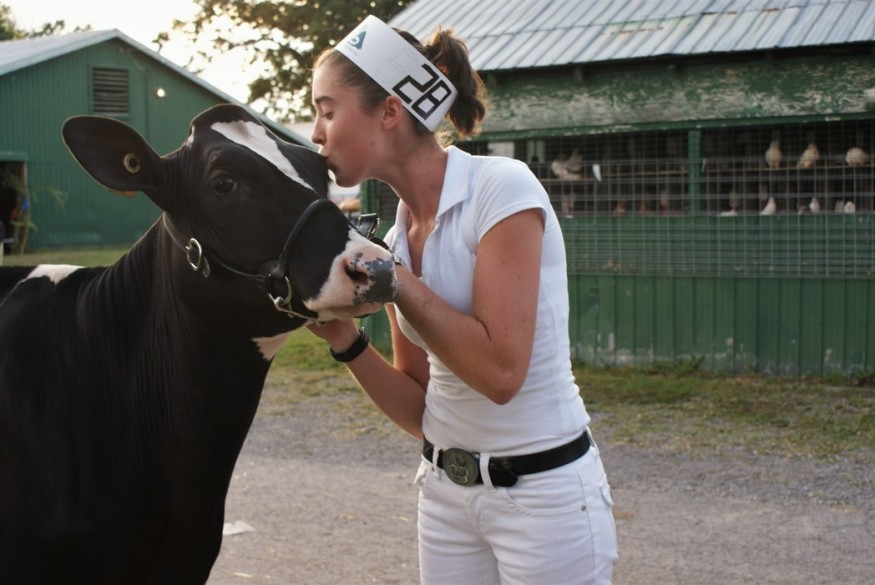A new study reveals that cows prefer face-to-face interaction with humans than listening to a pre-recorded voice. The Austrian researchers said that voice recordings over loudspeakers do not make the cows more relaxed than when they are spoken directly by a human.
In their experiment, they observed that the cows show signs of relaxation, such as their heart rate and positions of their necks, when spoken in-person.
When the cows are stressed, they stop producing milk, and their meat becomes tough, dry, and bland, according to the farmers.

Cows Prefer Live 'co-moo-nication'
Annika Lange of the University of Veterinary Medicine in Vienna, Austria, said that cows like the combination of stroking while talking as it helps them to relax.
"In scientific contexts, a recording of a human voice speaking gently could be used to relax the animals, because it can be difficult to repeat the same phrases in the same way during experiments," Lange said.
The experiment involved using a pre-recorded voice that is used in each trial and live communication with the cows. Phys.org reports that the research aims to identify the differences in the effect of the two factors on the cows. Lange said that the interactions might become less positive as communication becomes artificial, although it is standardized.
The researchers conducted their experiment on a herd of 28 cattles and compared how the animals would react to stroking while playing a recorded voice versus stroking while chatting with the animal. They found that cows prefer the live talking over recorded voice as it enhances their mood.
They also analyzed the heart of the animal in which they found that its variability is higher during live chatting, indicating that the animal was enjoying itself with the interaction. However, the recorded voice elicited a lower heart rate which means they are relaxed after their live chat.
According to Lange, it is easy to spot when the cow is enjoying itself with the interaction as it often stretches out their necks like when they groom each other. Also, the cattle's hanging or low er positions indicate that they are relaxed.
Ultimately, Lange and her team concluded that recorded voice can promote positive states on the cattle but that they are not necessarily preferable because the animals prefer the live chatting with humans.
Read Also: Are Cows Dangerous? England Authorites Report Two Cattle Attack Deaths This Month
Cattle stress
The research, published in Frontiers in Psychology, only included one herd and one voice recording, which follows the concept of standardization.
Therefore, the researchers call for further experimentation or investigation to see if future researchers would also yield the same results. Perhaps future researchers could conduct it on different herds and situations like on cows that are afraid of humans.
In that way, it could improve the relationship between the cattle and humans, which is an essential part of animal welfare, MailOnline reports.
A stressed cattle would cause a fight-or-flight response in them which could translate to tensed muscles, aggressive behavior and others. Some causes of their stress could include whooping and hollering animals, travelling, and cattle rods.
Read More: Fossil Fuels and Cows Are Contributing to More Methane Emissions Than Previously Thought
Check out more news and information on Cows in Science Times.
© 2025 ScienceTimes.com All rights reserved. Do not reproduce without permission. The window to the world of Science Times.












